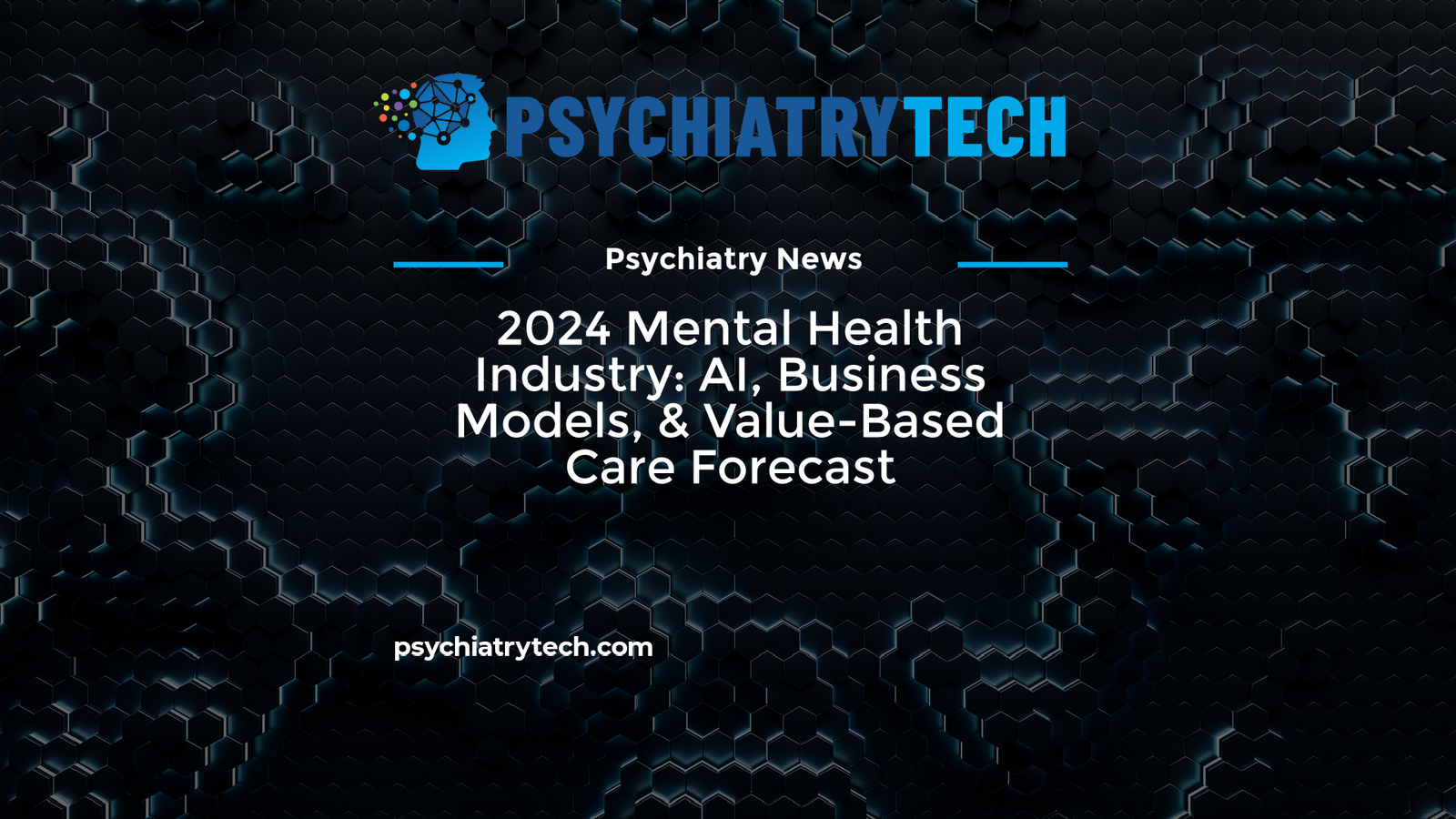2024 Mental Health Industry: AI, Business Models, & Value-Based Care Forecast
The mental health industry is poised for significant changes in 2024. The forecast includes a more client-centric approach to mental health care, the utilization of AI in psychiatric treatment, and a movement toward value-based care. The following insights are based on interviews with mental health executives nationwide.
Business Models
Executives forecasted a shift from the prevalent fee-for-service models to pay-for-performance and pay-for-value models. The psychiatric treatment will be incentivized based on clients’ health outcomes instead of providers’ efforts. According to Dr. Fiona Patrick, CEO of a California-based mental health organization, fee-for-service models do not encourage psychological and emotional improvements from clients. Clients may continue to go through long-term psychological disorders, and service providers continue to be paid. Value-based care models, on the other hand, will hold providers accountable for their clients’ outcomes.
Telepsychiatry will also become more important. The industry increasingly sees the telehealth model as an important element of modern mental health care. A recent study found that 70% of mental health professionals believe telehealth will become an important way to deliver psychiatric services in the future.

Discover The World's MOST COMPREHENSIVE Mental Health Assessment Platform
Efficiently assess your patients for 80+ possible conditions with a single dynamic, intuitive mental health assessment. As low as $12 per patient per year.
AI and Machine Learning
Mental health care will increasingly make use of AI and machine learning to empower the people who work in the industry. AI will help mental health professionals provide care more efficiently and empower patients to self-treat mental health disorders. AI-enabled tools will provide psychiatrists with a new level of precision in diagnosis and care, making it possible to prescribe more effective treatments in shorter periods of time.
Dr. Stephen Kim, a psychiatrist in Kansas City, spoke highly of AI-enabled tools in the field of psychiatry. He explained that AI allowed him to provide patients with accurate diagnoses that he may have missed without its assistance.
Mental Health Screening
AI-enabled tools can carry out more elaborate mental health screenings. Chatbots, an AI-enabled tool, will help people appreciate their mental health status. It is a nonthreatening way because it engages people in everyday conversation to screen them. The tool will analyze the conversation and provide feedback as far as potential mental health concerns are concerned. Chatbots can also be helpful in crisis situations where access to a therapist is limited or nonexistent.
Value-Based Care
As part of a shift toward value-based mental healthcare, mental health service providers will seek to address health disparities affecting vulnerable populations. Providers will target vulnerable populations, including people of color and those in economically disadvantaged areas, and find ways to break down barriers to care. As an industry, the mental health service providers want to make sure that every person has access to the resources they need.
Additionally, providers will focus on delivering high-quality care at an affordable cost. Value-based care seeks to reduce the cost of mental healthcare by avoiding unnecessary care, improving care coordination, and utilizing technology effectively.
Conclusion
The mental health industry will experience a significant shift in 2024. This shift will focus more on value-based care, including more client-centric models and using technology such as AI and machine learning. Mental health professionals must adapt to these changes to remain competitive and serve their clients effectively.
The adoption of AI-enabled tools, value-based models provide mental health professionals with a unique opportunity to improve the quality of care they provide. These changes will require clients and mental health professionals to be more engaged in the treatment process, which is a good thing. Transparency and trust between clients and service providers are vital to achieving the best outcomes for clients.
Promoting Client-Centered Mental Health Care
What do you think about the upcoming changes in the mental health industry? Share this article on your social media to promote client-centered mental health care, telepsychiatry, and the use of AI-enabled tools in the complex world of psychiatric treatment.

